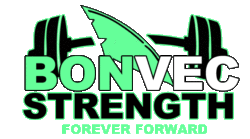Lifting is only one piece of the puzzle when it comes to getting stronger and building muscle. What we eat can affect the quality of our workouts and how quickly we recover from them. Intra-workout nutrition – what we consume during our workouts – gets overlooked by many.
What should we be eating or drinking while we lift to maximize our results? It’s generally accepted that you should consume carbohydrates for energy and a small amount of protein (usually in the form of whey protein or branched chain amino acids) to promote muscle growth. But before you scarf down chicken fettuccine alfredo in between sets of squats, here are three things to consider when planning your intra-workout nutrition.
You Might Not Need Anything
If you’re reading this, you probably lift weights and you probably don’t run ultramarathons. There’s a good chance you might not need anything besides water during your workouts. Low-volume and/or short-duration strength training doesn’t actually burn through too many energy substrates (specifically muscle glycogen), so if you’ve eaten a meal containing protein and carbs within a few hours of training, you’re probably all set.
There’s no specific volume marker or duration that can definitively determine if you need an intra-workout snack. I’ll advise lifters to observe the quality of the end of their workouts. Are you finding yourself wanting to skip your accessory work or conditioning? Are you having a hard time adding weight and/or extra sets to your lifts at the end of your sessions? Consuming some extra carbs and protein may give you the energy needed to finish like you started.
Whey Beats BCAAs
Branched chain amino acids (BCAAs) are the most popular intra-workout supplement due to their ability to reduce muscle protein breakdown. The amino acid leucine in particular seems to have powerful hypertrophy effects. BCAAs come in flavored powders that are easy to mix into water or a sports drink to sip while you lift.
You know what does the same exact thing, costs less and is probably already in your pantry? Whey protein.
Whey protein contains all nine essential amino acids and usually contains just as much or more leucine per serving than BCAAs. The only knock on whey I can think of is that it usually comes in less desirable intra-workout flavors (e.g., chocolate, vanilla) compared to BCAAs (e.g., sweet, fruity flavors).
If you mix a fast-digesting whey (e.g., whey isolate or hydrolysate) into a full-sugar sports drink, you’ve got a solid intra-workout shake without needing to buy BCAAs.
Avoid the Two F’s
How would you grade your intra-workout nutrition? Well, if it’s got the two F’s – fat and fiber – it gets, well… an F.
That’s because fat isn’t our body’s preferred fuel source for intense exercise. Carbs get the nod for that, specifically fast-digesting carbs. And while foods high in fiber are also high in carbs, they tend to be complex carbs that are slower to digest and not immediately available for energy.
Fat and fiber also slow down the digestion of whatever else you’re eating, so if you’re eating them along with fast-acting carbs, guess what? They’re no longer fast-acting.
So remember, powerlifters, those donuts you’re crushing on meet day might be delicious, but they’re high in fat. They won’t do much to gas you up for your next attempt. And berries and brown rice might be full of vitamins, minerals and other healthy nutrients, but their high fiber content make them a poor intra-workout choice.
Eat Right, Lift Right
To summarize:
- If you’ve eaten a full meal within a few hours of training, you probably don’t need any additional intra-workout nutrition.
- Whey protein mixed with a sports drink is likely superior (and more cost effective) than BCAAs.
- Limit fat and fiber during your workout.
If you’re in the greater Boston/Worcester area next weekend, we’re hosting a Nutrition for Performance workshop with Registered Dietitian Leslie Mathiasmeier on Saturday, July 15 at 8:30 am. Leslie is a mom, powerlifter and longtime friend of the Bonvec Strength community. She has the knowledge and real-world experience to help you reach your nutrition goals. At her workshop, you will:
- Learn the basics of nutrition and maintain a positive relationship with food
- Build a plate to fuel you to your goals
- Develop skills to customize nutrition for your needs and training
Cost: $29 for current Bonvec Strength members / $49 for non-members
Click below to get your tickets!


